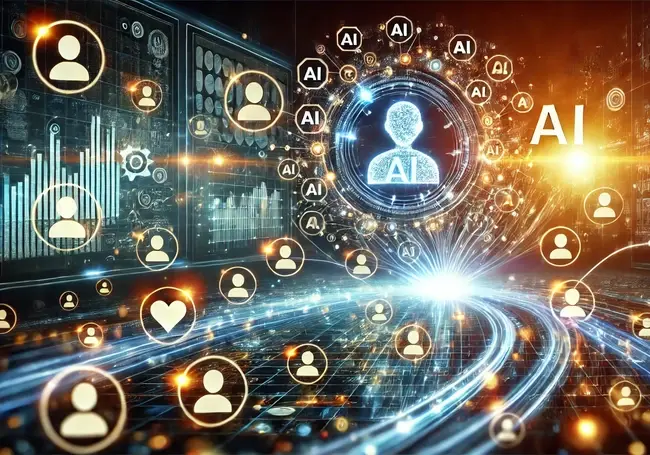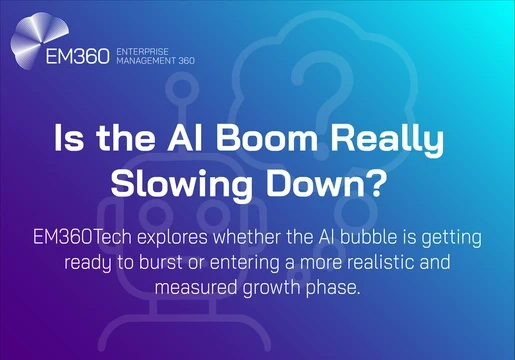Customers generate massive amounts of data with every online interaction. From browsing products to making purchases, this data leaves behind a trail that can provide valuable insights into customers’ journeys. Tapping into these insights presents an enormous opportunity for marketers to understand customers better and reconnect with them through targeted remarketing campaigns.
This is where artificial intelligence takes remarketing to the next level by dynamically generating hyper-personalized ads and messages. This article will explore leveraging AI to transform your remarketing efforts from generic retargeting into personalized experiences that speak to your audience.

What is AI-Driven Remarketing?
Traditionally, marketers retarget website visitors or past customers by simply re-exposing them to the same generic ads. However, with AI remarketing, ads become highly personalized. AI-driven remarketing uses artificial intelligence algorithms to analyze user data, including browsing history, purchase behavior, demographic information, and more. It identifies subtle patterns and correlations to understand customers on a deeper, individual level. The AI model then learns with each new interaction, continuously refining its analysis of each user’s wants and needs.
Armed with this deep level of personalized insight, AI remarketing can precisely target users with hyper-relevant ads. It doesn’t just rerun old ads but dynamically generates new creative content and messaging tailored for each viewer based on their inferred preferences, pain points, and purchase readiness. Ads become an ongoing conversation, with each touchpoint building upon the last to guide the customer toward a desired outcome gently.
Ultimately, customers feel understood and find value in promotions that genuinely align with their interests, while marketers gain better performance by forming meaningful connections with each individual in their audience.
Benefits of Integrating AI in Remarketing
There are several key benefits of remarketing for businesses that leverage AI technologies in their strategies:
Increased Relevance
One of the biggest advantages of using AI for remarketing is the increased relevance of ads. By analyzing each customer’s unique profile and behaviors, AI can understand their preferences at an individual level. It then ensures the ads and messages shown to that customer are directly relevant to their past purchases, website activity, and inferred interests.
Customers receive remarketing that feels personalized for them rather than generic. This level of relevance builds trust and increases the likelihood that customers will engage further.
Improved Targeting
With AI, brands can target remarketing efforts far more granularly than before. Customers can be placed into thousands of micro-segments based on hundreds of attributes like price points favored, product categories browsed, day/time of site visits, and more; this makes targeting infinitely more precise than traditional methods like geography or gender. Customers receive ads for the products and offers that most closely align with their demonstrated preferences—a change that can significantly boost response rates.
Personalized Messaging
Leveraging profile insights, AI enables the personalization of remarketing messaging and targeting. Customers see ads personalized with their favorite product attributes, past purchase details, saved items, or other context gleaned from their behavior.
The messages can be further customized based on attributes like customer lifetime value to utilize the right tone and value props for each group. This level of 1:1 personalization builds stronger trust, resonance, and engagement over a generic retargeting copy.
Continuous Optimization
As AI models learn from massive volumes of performance data, they can continuously self-optimize remarketing strategies. If a new segment or message variation proves more effective, the model autonomously scales it while phasing out underperforming tactics. This constant A/B testing and refinement keeps remarketing campaigns cutting edge and maximizing results. The algorithms ensure brands stay ahead of evolving customer preferences and behavior patterns for relentless optimization of relevance, ROI, and key metrics.
Increased Conversions
AI-powered remarketing consistently delivers significant uplifts in key performance indicators like conversion rates, average order value, and repeat purchase rates. By hyper-targeting the right message to the right person at the right time, AI minimizes wasted impressions while maximizing authentic engagement and action from prospects. Such personalized, automated strategies can boost sales conversions by 20%, directly translating to accelerated growth for remarketing programs.
AI-Powered Remarketing Techniques
There are three main AI techniques powering modern, data-driven remarketing approaches:
Predictive Analytics
Using machine learning on historical customer data, businesses can develop predictive models to identify attributes that correlate strongly with future purchasing behavior. Marketers can use these patterns to target the subsets most likely to repurchase. For example, models may find that customers who view 3+ product pages have an 80% chance of a repeat purchase within 30 days.
Dynamic Ad Personalization
AI dynamically generates personalized ad copy, images, calls-to-action, and even complete website experiences based on each customer’s attributes and past actions. For example, a business listing the exact products a customer viewed previously alongside personalized messaging like “Don’t forget about X - it would be perfect for your needs.”
Advanced Segmentation
Rather than relying on basic demographic or behavioral segments, AI automates the sophisticated classification of customers into micro-segments with highly specific attributes. For example, one segment may consist of customers who recently purchased Product A and viewed Products B and C but did not add them to the cart. Segment-specific retargeting campaigns can then be tailored and optimized individually.
Implementing AI-Driven Remarketing Campaigns
To successfully implement AI-driven remarketing strategies, businesses should follow these key steps:
Setting Up AI Tools
Marketers have to select the right AI-powered marketing platforms, usually involving tag management and customer data platforms integrated with ML-enabled advertising platforms. Effective tools like Google Analytics 360, Adobe Experience Cloud, and Postmark make customer data available for analysis and activation in search, social, and email channels.
Data Collection and Analysis
Thorough data collection is key, encompassing on-site behaviors, transaction data, Customer Relationship Management (CRM) records, and more. AI models are only as good as their training data. Continuous analysis then identifies patterns and segments that inform remarketing strategies.
Creating and Testing AI-Driven Ads
Marketers leverage AI insights to craft highly targeted ad groups, personalize creative elements, and automate dynamic content rules. Ongoing A/B testing ensures campaigns are refined based on their measurable impacts on engagement and conversions.
Measuring the Success of AI-Driven Remarketing
To gauge the effectiveness of your AI-driven remarketing efforts, tracking key metrics and continuously improving your strategies is crucial.
Key Performance Indicators (KPIs)
To effectively measure the success of their AI-powered remarketing campaigns, marketers should closely track these key performance indicators to check campaign effectiveness over time:
Click-through Rate (CTR): The percentage of impressions that result in a click. AI algorithms can be refined to optimize CTR over time.
Conversion Rate (CVR): The ratio of clicks converted to a desired action like a purchase, sign-up, or download. Personalization through AI should boost CVR.
Average Order Value (AOV): The average amount spent per transaction, which AI helps increase through targeted promotions.
Repeat Purchase Rate: The percentage of customers making additional purchases, which AI aims to increase through re-engagement.
Lifetime Customer Value (LCV): The total revenue generated from a customer relationship over time. AI helps maximize LCV through anticipatory messaging.
Cost per Click (CPC) and Cost per Acquisition (CPA): The spending metrics that AI strives to reduce through maximizing CTR and CVR.
Continuous Improvement
By continuously tracking these KPIs, brands gain key insights into what is and isn’t working with their AI strategies. Performance data feeds back into the machine learning models to drive ongoing enhancement. Examples include:
Underperforming segments or messages can be deprecated to refocus the budget.
New tests can analyze different creative elements, targeting tactics, or customer profiles.
Winning strategies from tests are then automatically scaled by the AI.
Models learn which customer actions are most predictive to further boost targeting accuracy.
This closed-loop feedback cycle allows AI to refine and optimize remarketing approaches on an ongoing basis, ensuring the highest returns on investment and the most effective experience for customers.
Final Thoughts
Businesses are just scratching the surface of what’s possible when AI algorithms fuel customer insights and power dynamic, tailored experiences across remarketing channels. By prioritizing data-driven testing and optimization, marketers can steadily increase their abilities to reconnect with customers and measurably boost critical metrics like repeat purchase rates and lifetime value. The combination of AI and truly personalized remarketing paves the way for sustainable growth through loyal, returning customers.







Comments ( 0 )